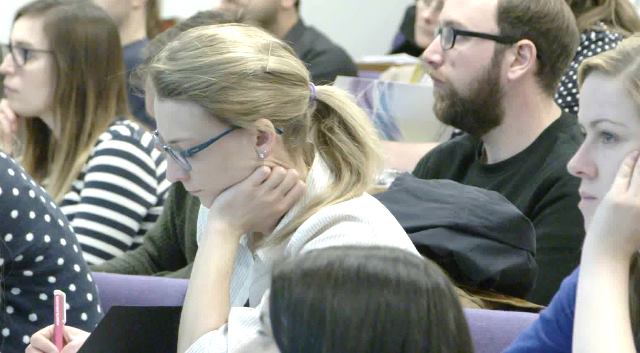Manchester researchers deliver Advanced Radiotherapy Summer School
In July, around 70 radiographers, medical physicists, clinicians and biologists attended The Christie Advanced Radiotherapy Summer School.
Delivered by Manchester Biomedical Research Centre (BRC) researchers, in collaboration with colleagues and external speakers the event was an opportunity for delegates to discover, discuss and debate recent advances in radiotherapy.
One of the course organisers, Dr Ananya Choudhury, Consultant in Clinical Oncology at The Christie explains:
Advances in technology present a lot of exciting opportunities to deliver better patient outcomes through radiotherapy. This is particularly the case in Manchester where we will be able to offer patients clinical treatment using the proton beam and MR-Linac at The Christie from 2018. The summer school brought together delegates from across the UK and internationally to share practical ideas about how we can use these treatments in the future.
“Supported by our NIHR Manchester Clinical Research Facility, BRC research will embrace technological advances and develop biomarkers to predict the effectiveness of different types of radiation and drug-radiation combinations, as well as helping to minimise the risk of long-term side effects.”
Learn more about our BRC-funded Advanced Radiotherapy research.
The topics covered at the Summer School were:
- Proton Beam Therapy
Exploring the use of new proton beam therapy to target tumour cells more accurately to reduce radiotherapy side-effects and improve quality-of-life. - Stereotactic Ablative Radiotherapy and Stereotactic Radiosurgery
Using concentrated intensive radiotherapy over a short period of time to target and treat small tumours (e.g. non-small cell lung cancer, prostate cancer).
- Adaptive Radiotherapy
Current radiotherapy is personalised and adaptive to some extent, as treatment approach is based on the size and shape of the individual and the tumour, as well as the location of the tumour. A patient is scanned a few times during the treatment and the approach adjusted accordingly.
In the future, we are working towards a more personalised approach, in which a patient may be scanned more frequently and we can use high-powered computing to adapt treatment in real time based on changes to the size, shape and location of the tumour. This would be useful, for example, in lung cancer where a patient’s breathing rate may change from one visit to the next. Another approach we are exploring is how we adapt our approach to radiotherapy based on the changing biology of the tumour (e.g. aggression, activation of specific biological pathways, level of oxygen) and the individual.
The Christie NHS Foundation Trust is one of Europe’s leading cancer centres and is the largest single-site centre in Europe, treating in excess of 44,000 patients per year. It has one of the world’s largest radiotherapy departments and will open the first of only two NHS high energy proton beam therapy centres in the UK in 2018.




